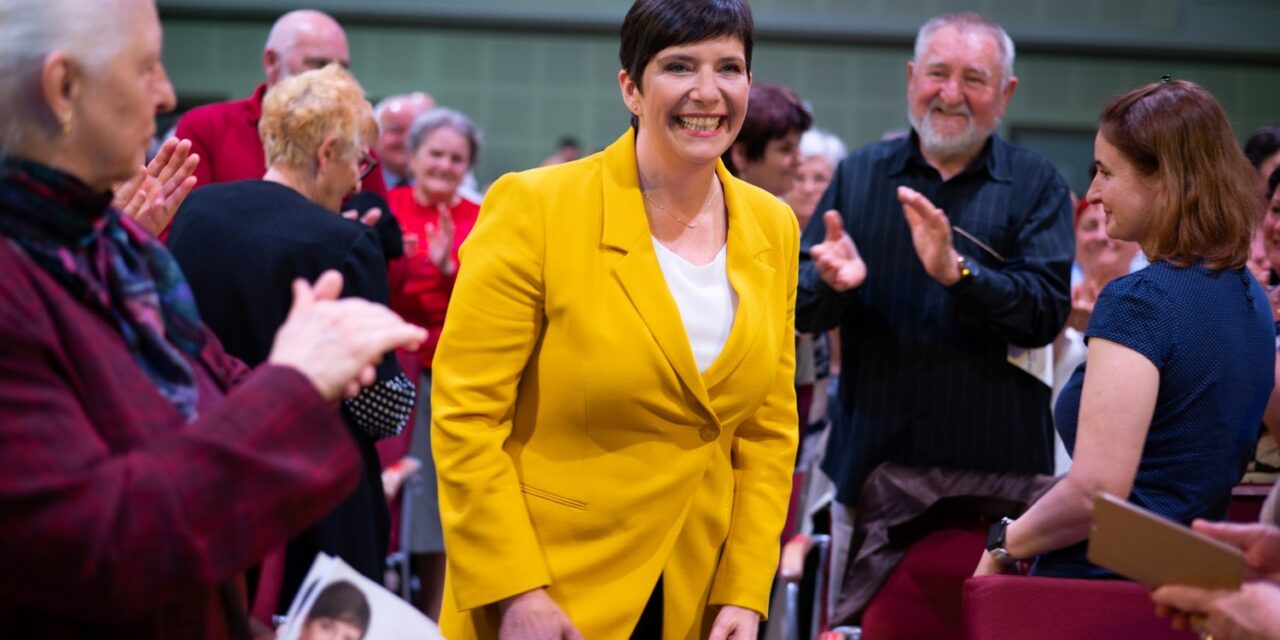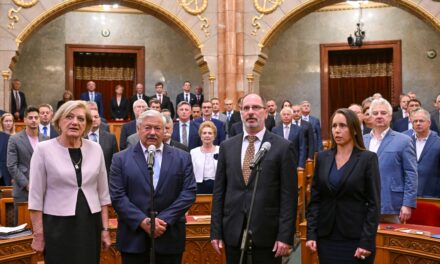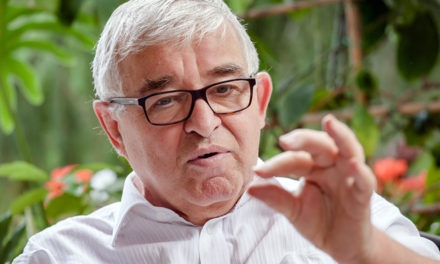Dear leftists, seriously, is this some kind of central directive that you can't post about the Polish elections without referring to the "European way"?
It's a habit not to understand what, but really what, so many people still eat in this government; why doesn't it finally dawn on all those idiots how poorly led this country is.
In such cases, of course, one may remember the old story:
"A bishop once went from village to village to visit the churches, and they were surprised that no church bells had been rung at first. When the churchman was asked why they wouldn't ring the bell, he simply answered: »There are thirty-two reasons for that, honorable sir. First, because we don't have a bell.« »Enough! said the bishop. "That's thirty-two reasons."
The average pro-government supporter may have thirty-two reasons, but the first one is more than enough: that
prudently, he does not see a sane, governing opposition conglomerate that would be able to serve the community by reacting to world events at the right time, in the right rhythm, and in the right voice.
Let us see, for example, the reception of the Slovak and Polish elections.
"We congratulate Robert Fico on his undisputed victory in the Slovak parliamentary elections. It's always good to work with a patriot. I look forward to the continuation!" Viktor Orbán wrote on the first of October.
"The results of the elections give a chance for a stable government to be formed in Slovakia again and for Slovak-Hungarian relations to develop further. (…) Robert Fico also thinks the same way about war, migration and gender issues as we do. His victory offers a serious chance to strengthen the V4 alliance"
Péter Szijjártó analyzed the situation on the same day.
I am "waiting", there is a "chance" to work together and strengthen ourselves in concrete cases, on issues that are similarly judged by both sides, in a mutually beneficial way for the two countries. That's it. "The Hungarian right-wing doesn't love Fico - it can only count by two", so to speak.
And what is the alternative in comparison?
"I congratulate the Polish opposition! They showed that there is a way back to Europe," posted Klára Dobrev on Monday evening.
"I love Poland. Today I drank my usual latte from a mug made by a (...) Polish folk artist. (…) it seems that our Polish friends are returning to the European road"
Gergely Karácsony pondered.
Dozens of ramblings about the "return to the European path", emotion-based, frothy symbol politicization, issuing a blank check to the yet-to-be-formed government of a much bigger and stronger country than ours.
Maybe half a character about why this situation is good for Hungary concretely and at the moment? It's okay until Orbán can fall faster this way - and after that?
What ideas do you have about joint advocacy? We will march together on the "European road" hand in hand, looking forward to Brussels, where the Abdeslam Lassoueds will be waiting for us in cold blood if necessary, whom the European authorities of such European countries know in vain to be human traffickers who are in the country illegally and who can be concretely suspected of undermining state security, whose radicalization even signals are received, yet they don't believe that they pose an acute threat to society?
Today's Schaerbeek, in whose cafe a terrorist sat with his gun after committing his deed, while local children could not leave home for school because of the threat, and which
"one of the settlements most affected by jihadist recruitment", was it a more European place than Częstochowa and Krakow until last Saturday?
Is Szalafő in Őrség less civilized and governed by the rule of law than Arras in northern France, where a teacher once again became the victim of an Islamist attack carried out with the cry of "Allah Akhbar", which is why classes began nationwide on Monday with a two-hour trauma session?
Thanks to NGOs, the Brussels bomber entered Europe as an illegal migrant from Lampedusa
Abdeslam Lassoued's asylum application was rejected in 2020, but the deportation decision has not been duly delivered to him since then (not that the delivery would have changed the situation much). The killer from Arras arrived in France at the age of six, in 2008, so even though his radicalization was known, he could not be deported, as according to the law, immigrants before the age of 13 are protected in this regard. From the point of view of the rule of law and the rule of law, everything is fine over there, the justice system is much more fragrant than it was in the Poles -
just as a stray side effect, a known criminal stabbed a teacher in front of screaming students.
Is it any wonder that many thinking Hungarian citizens are skeptical about the European rule of law after seeing the multitude of such news? How well does the politician feel the vibrations of the average Hungarian, who, seeing the success of a pro-Brussels political force, reflexively shouts "long live the European way"? And to what extent does it make the EU's rule of law criteria more credible if a government is not even established, but its actions are already classified as exemplary European and democratic?
Does this make the Fidesz voter believe that the EU institutions punish on the basis of strictly objective criteria, and not on the face?
Moreover, it never hurts to be able to govern if a political force has an interpretable second and third line, as well as an intellectual hinterland. Which helps the work of leading politicians with smart ideas and remarkable aspects,
as a kind of think tank, it supplies the country's leaders with ammunition. What do we see?
Just as Benedek Jávor celebrated Fico's supposed failure with the sentence "Slovakia will certainly continue on the European path" in his famous post, which also testifies to the opposition's excellent sense of pace, Zoltán Somogyi now analyzes the situation with the insight "Tusk is leading the country back to the European path", while the DK theologian "Poland returned to Europe on October 15!" welcomes the developments with an exclamation. According to the education politician of the moment, Endre Tóth, "Poland can return to the European path", and dean Zoltán Szabó believes that "Poland has returned to Europe".
Is this some kind of central instruction that no post about the Polish elections can be made without referring to the European way?
We hope so, because it would be even more embarrassing if the majority of the opposition public came up with exactly the same sentence that said nothing and had nothing to do with the concrete problems of the average Hungarian. Compared to this, Jenő Kaltenbach can be characterized as refreshingly original, who on Monday afternoon, a few hours before the latest terrorist act in Brussels, called it a danger that Kaczyński would not be willing to hand over power, but in relation to the Muslim "danger" in quotation marks, he stated: we are talking about predominantly integrated people,
"the panic reaction (sic!) is therefore quite unjustified".
But let's not be unfair: Péter Ungár, who, unlike his colleagues, was able to wait a bit and gather his own (in addition to existing) thoughts, was the only one to state,
"no, this year's Polish campaign could not end with a result that would result in Poland returning to Europe", and "Poland is currently the most important bilateral relationship for Hungary, so it is worth looking at the result from this point of view".
Then when Péter Ungár becomes the leader of the opposition and the so-called expert opposition-critical liberal analysts become the intellectual hinterland, Fidesz may start to get nervous.
As long as the alternative course is determined by the politicians and commentators who remind us of the nerdy nerd who betrays the class community at any time, and who do not see today's Hungary as part of Europe, the voter will still have thirty-two reasons not to vote for them.
Mandarin
Featured image: Klára Dobrev's Facebook page













